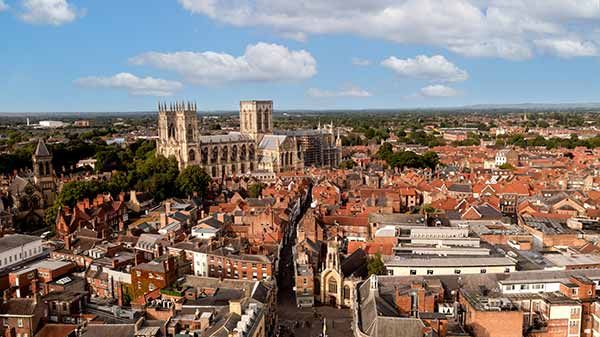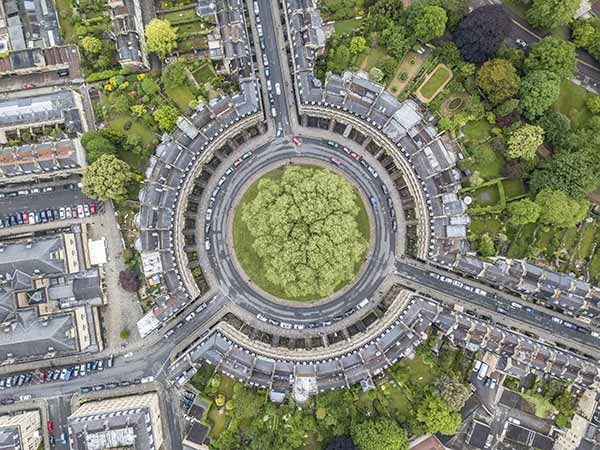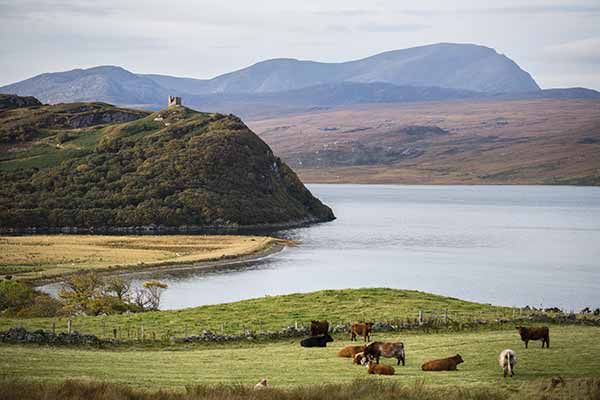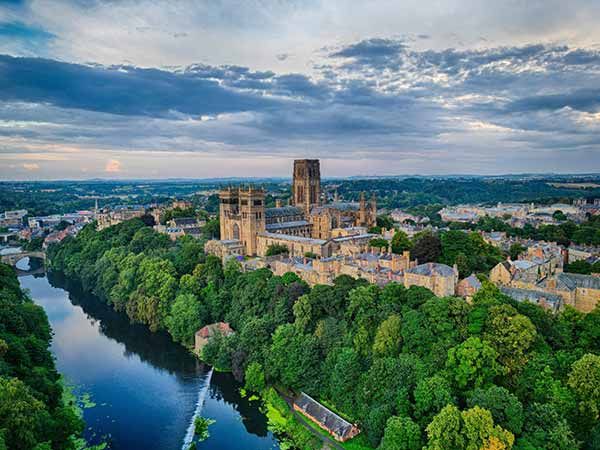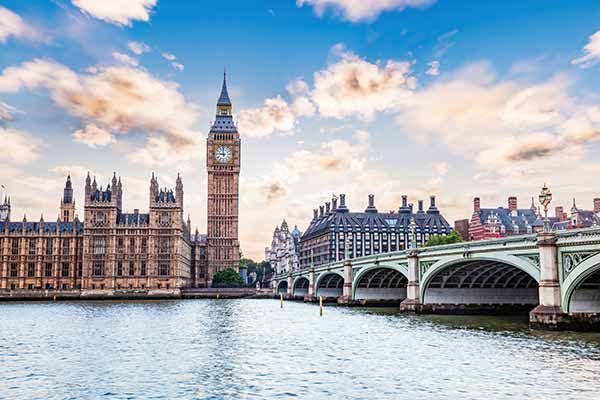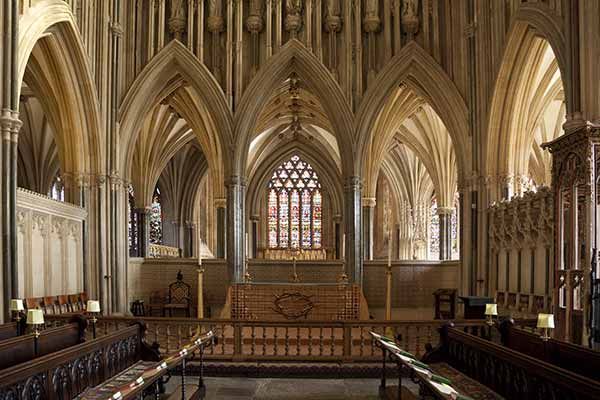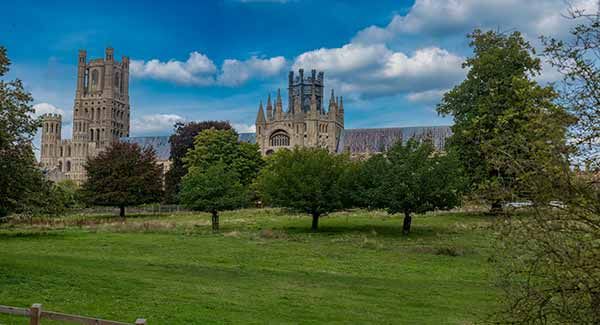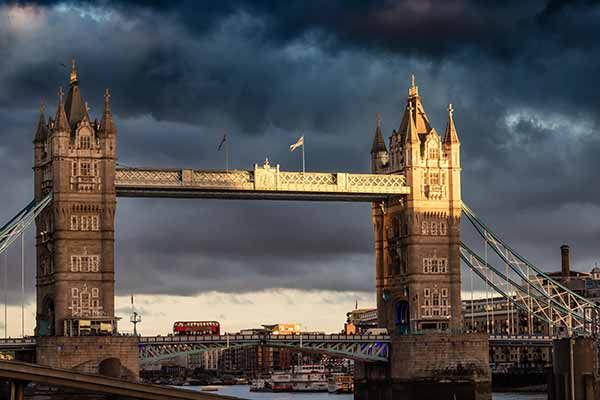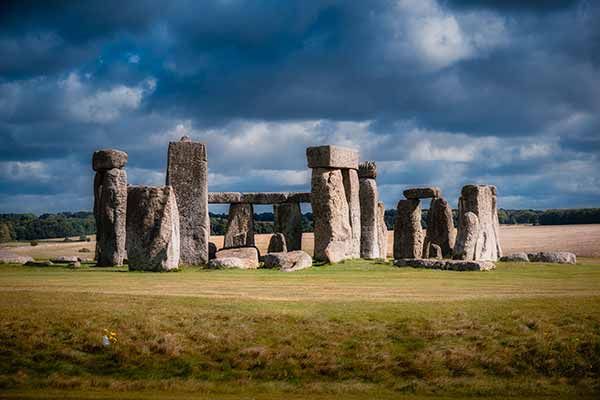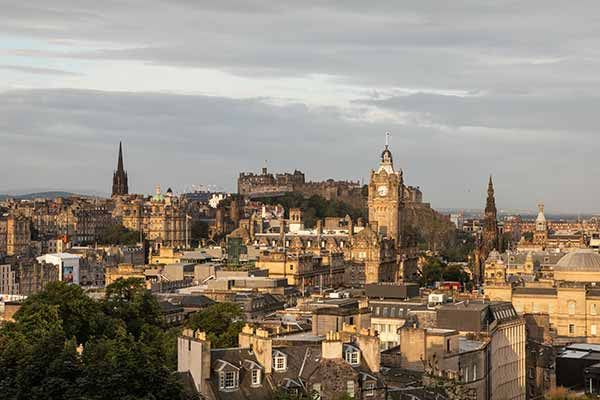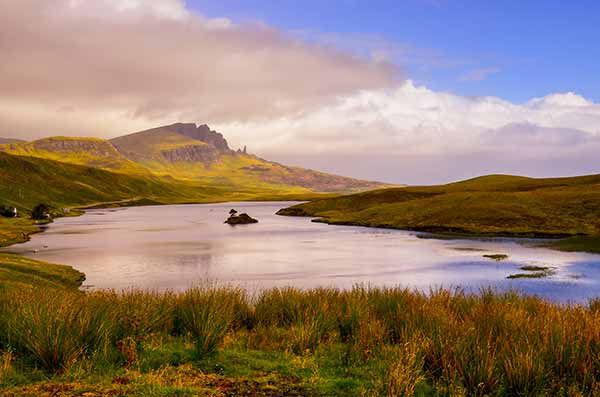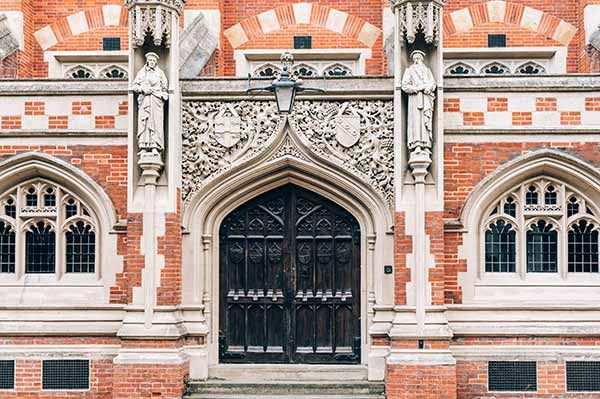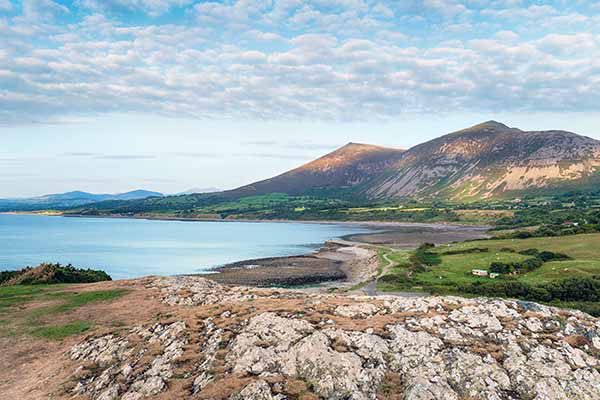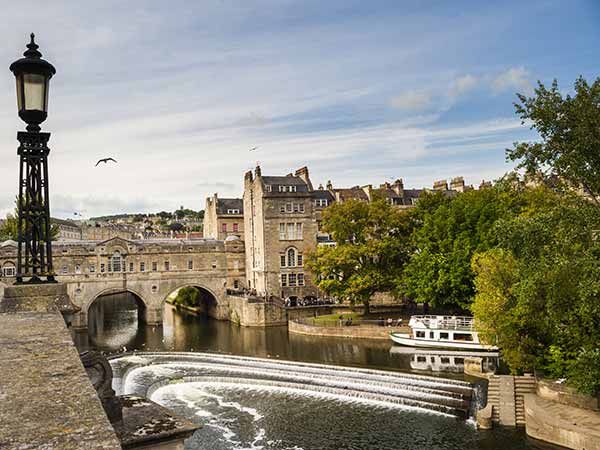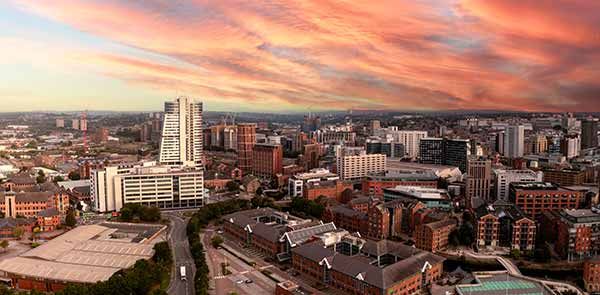Great Britain
Great Britain is all about iconic pubs, charming countryside, ancient castles, dry humor, and endless cups of tea. It’s historic, eccentric, and bursting with character.
From the world-class museums and theater in London, to the mystical landscapes of Scotland and the rolling hills of the Cotswolds—Great Britain is full of surprises. There are rugged coastlines in Cornwall, gothic universities in Oxford and Cambridge, epic hiking trails in the Lake District, and dramatic castles across Wales and Scotland. Whether you're catching a West End show, exploring medieval ruins, or wandering cobbled streets in small villages, there’s a timeless charm here that keeps drawing travelers back. Great Britain may not be the cheapest destination, but public transport, budget-friendly accommodations, and free museums make it accessible. Don’t try to do it all in one trip—slow down, soak it up, and enjoy the quirks along the way.
Best time to visit Great Britain
Great Britain is a year-round destination, but the best time to visit depends on what you want to experience. Spring (March to May) is one of the most beautiful seasons, with parks and countryside bursting into color and mild weather perfect for sightseeing. It’s also a great time for cultural events like the Chelsea Flower Show in London. Summer (June to August) brings long daylight hours, outdoor festivals like Glastonbury, and the warmest weather, making it ideal for city breaks, coastal adventures, and exploring the countryside—though it's also the busiest season.
Autumn (September to November) paints landscapes in vibrant hues of gold and red, offering crisp days perfect for hiking in the Lake District or visiting historic cities like Edinburgh and York without the summer crowds. Winter (December to February) transforms cities into festive wonderlands with Christmas markets, ice rinks, and cozy pubs; while the Scottish Highlands and parts of Wales offer dramatic, snow-dusted scenery for adventurous travelers. Whether you're after lively events, peaceful strolls, or festive charm, Great Britain offers a rewarding trip in every season.
The top Regions
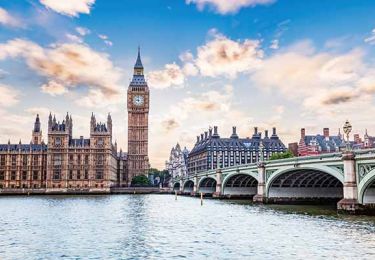
London
As the vibrant capital, London offers a dynamic blend of historic landmarks like Buckingham Palace and the Tower of London, world-class museums, diverse neighborhoods, and a thriving arts and culinary scene. The River Thames weaves through the city, connecting centuries of history with modern energy.
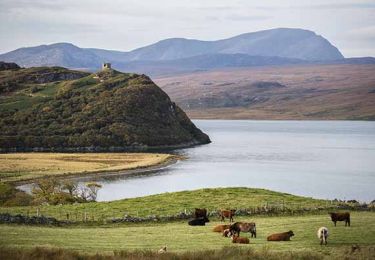
Scotland (Lowlands and Highlands)
Scotland captivates with its dramatic landscapes, from the misty Highlands and serene lochs to the cultural hubs of Edinburgh and Glasgow. Visitors can explore medieval castles, experience traditional Highland games, and marvel at the natural beauty of places like the Isle of Skye and Cairngorms National Park.
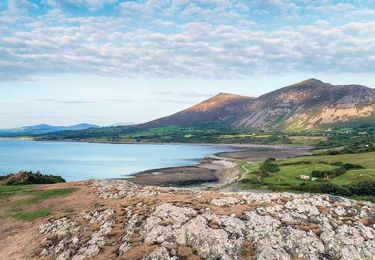
Wales
Known for its rugged coastline, towering mountains, and distinct Celtic culture, Wales enchants travelers with sites like Snowdonia National Park, historic castles, and charming villages. The Pembrokeshire Coast offers stunning seaside walks, while Cardiff showcases vibrant urban life.
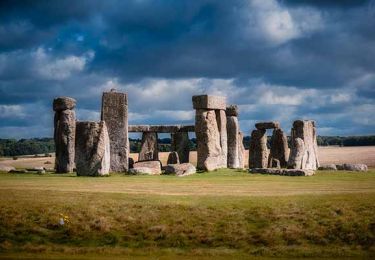
South West England
This region boasts stunning coastal scenery, from the surfing beaches of Cornwall to the fossil-rich cliffs of Dorset’s Jurassic Coast. Historic cities like Bath, with its Roman heritage, and Bristol, with its maritime history and creative spirit, offer rich cultural experiences.
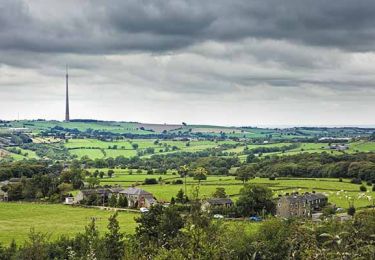
Northern England
Featuring cities like Manchester, Liverpool, and York, Northern England is steeped in industrial history, musical heritage, and medieval charm. The Lake District, a UNESCO World Heritage Site, provides breathtaking landscapes for hikers, poets, and outdoor enthusiasts alike.
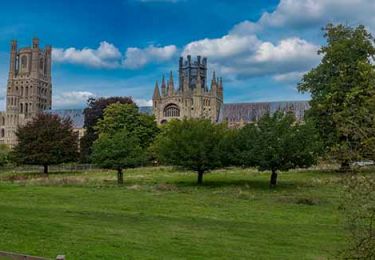
East Anglia
A peaceful region of flat landscapes, medieval towns, and endless skies, East Anglia is home to historic Cambridge, charming coastal villages in Norfolk, and the unique waterways of the Norfolk Broads, perfect for leisurely boat trips and countryside escapes.
The top Cities
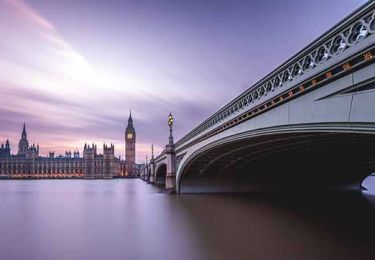
London
A must-visit metropolis where royal history meets cutting-edge modern life. Home to iconic landmarks like Big Ben, the British Museum, the West End theatre scene, and vibrant neighborhoods like Camden and Shoreditch. London offers something for every traveler—historic tours, luxury shopping, fine dining, and a world-class art and music scene.
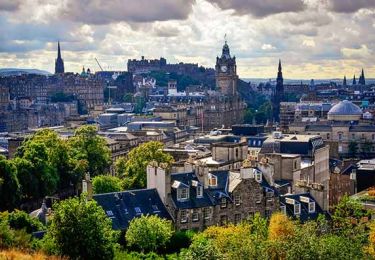
Edinburgh
Scotland’s capital is famous for its stunning medieval Old Town, elegant Georgian New Town, and the imposing Edinburgh Castle. It’s especially lively during the summer’s Edinburgh Festival Fringe, the world’s largest arts festival. The city's dramatic setting and deep literary and cultural traditions make it unforgettable.
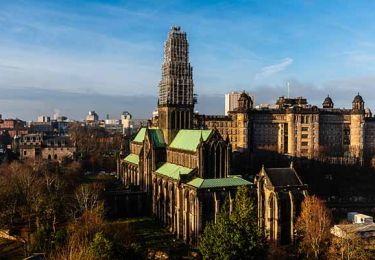
Glasgow
A city with a creative, youthful energy, Glasgow shines with its music scene, industrial heritage, and Victorian architecture. It’s less touristy than Edinburgh but rich in art, shopping, and nightlife. The Kelvingrove Art Gallery, the Riverside Museum, and vibrant West End cafes create a perfect mix of culture and cool.
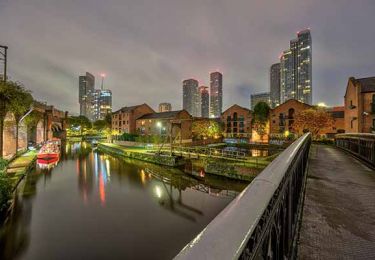
Manchester
Known as a modern powerhouse of culture, sport, and innovation. Manchester buzzes with energy, from the legendary music history (think Oasis and The Smiths) to the two Premier League football clubs. The city center blends historic mills and modern skyscrapers, with trendy districts like the Northern Quarter offering hip cafes, indie shops, and vibrant street art.
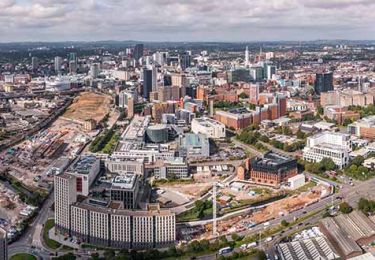
Birmingham
The UK’s second-largest city is a hub of commerce, shopping, and multicultural experiences. Visit the futuristic Library of Birmingham, explore the canals lined with cafes, and shop at the Bullring. The city’s revitalized industrial charm and the nearby cultural treasures of the Black Country make it an increasingly popular stop.
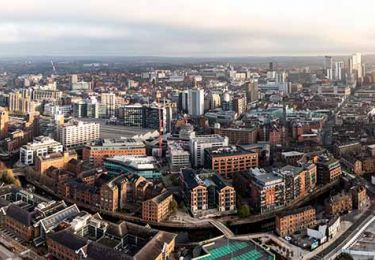
Leeds
A stylish city that's booming with shopping, nightlife, and art. Leeds combines Victorian arcades, high-end stores, and a dynamic food scene. It’s also a gateway to exploring Yorkshire’s stunning countryside, making it perfect for those who want city energy with easy rural escapes.
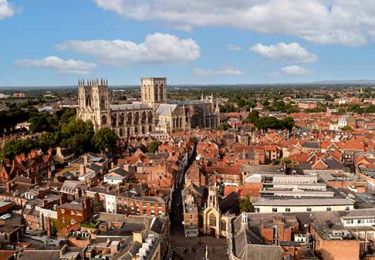
York
Step back in time in York, a beautifully preserved medieval city encircled by ancient walls. Visitors can stroll down the Shambles (a crooked medieval street), visit the magnificent York Minster, and explore Viking history at the Jorvik Viking Centre. Every corner feels steeped in centuries of drama and story.
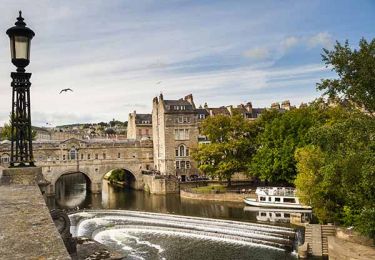
Bath
Famed for its Roman Baths and honey-colored Georgian architecture, Bath offers a romantic, elegant atmosphere. You can soak in the modern Thermae Bath Spa, visit Jane Austen’s former haunts, and admire the Royal Crescent. It’s a blend of classical beauty and contemporary leisure.
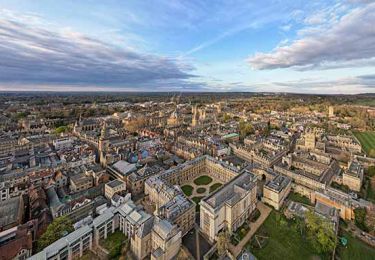
Oxford
The world-renowned university city enchants visitors with its historic colleges, stunning libraries, and botanical gardens. Wander cobblestone streets, take a punt on the river, and immerse yourself in the literary and academic traditions that have shaped world history.
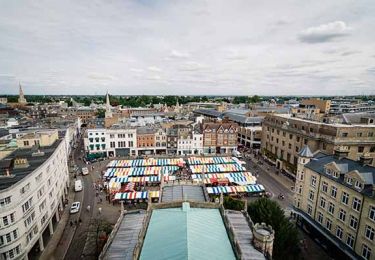
Cambridge
The world-renowned university city enchants visitors with its historic colleges, stunning libraries, and botanical gardens. Wander cobblestone streets, take a punt on the river, and immerse yourself in the literary and academic traditions that have shaped world history.
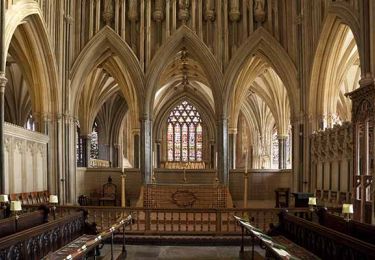
Canterbury
This picturesque city in Kent is known for its stunning Canterbury Cathedral, a UNESCO World Heritage Site. Walk its charming old streets, explore its rich literary connections (like Chaucer’s Canterbury Tales), and enjoy the relaxed, historic ambiance.

Durham
This picturesque city in Kent is known for its stunning Canterbury Cathedral, a UNESCO World Heritage Site. Walk its charming old streets, explore its rich literary connections (like Chaucer’s Canterbury Tales), and enjoy the relaxed, historic ambiance.

St Andrews
Known worldwide as the birthplace of golf and home to Scotland’s oldest university, St Andrews offers historic ruins, lovely beaches, and a charming small-town vibe. It’s a peaceful yet prestigious spot with stunning coastal walks.

Inverness
The gateway to the Scottish Highlands, Inverness is small but lively, offering easy access to Loch Ness, Culloden Battlefield, and some of Britain’s most dramatic scenery. It’s perfect for travelers wanting a blend of city comfort and outdoor adventure.
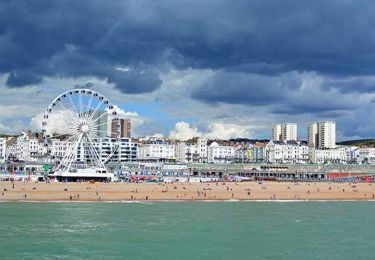
Brighton
A colorful, bohemian city on the south coast, Brighton is famous for its vibrant arts scene, quirky shopping in the Lanes, and its historic pier. It’s also a hotspot for LGBTQ+ travelers and anyone looking for a relaxed, seaside vibe combined with great nightlife.
Must see locations
Bath
Oxford
Cambridge
Canterbury
Durham
St Andrews
Inverness
Brighton
London
Edinburgh
Glasgow
Manchester
Birmingham
Leeds
York
The best tours
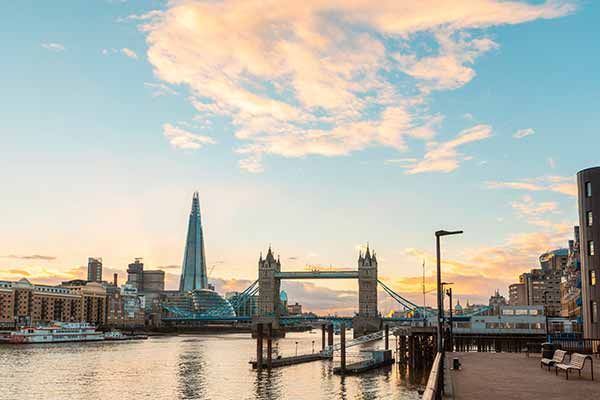
The 14 Best Things to Do in London
The video offers a curated guide to London's top attractions, blending iconic landmarks with local favorites. Highlights include visits to Buckingham Palace, Tower of London, and British Museum, as well as experiences like exploring Camden Market, enjoying views from the London Eye, and strolling through Hyde Park. The travel expert provides insights into each location, offering tips to enhance your London experience.
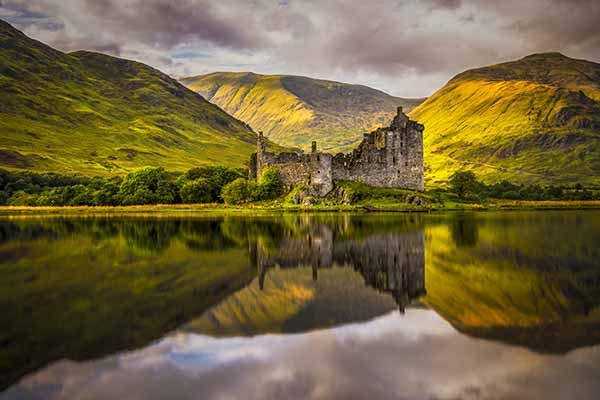
Top 10 Castles to Visit in England
The video highlights England’s most iconic and historic castles, each offering a unique glimpse into the country's rich heritage. Featured castles include Windsor Castle, Dover Castle, Leeds Castle, and Warwick Castle, among others. Some are famous for their royal history, while others like Alnwick Castle and Highclere Castle are known from popular films and TV shows. The video is a quick guide for anyone interested in England’s majestic architecture and legendary past.
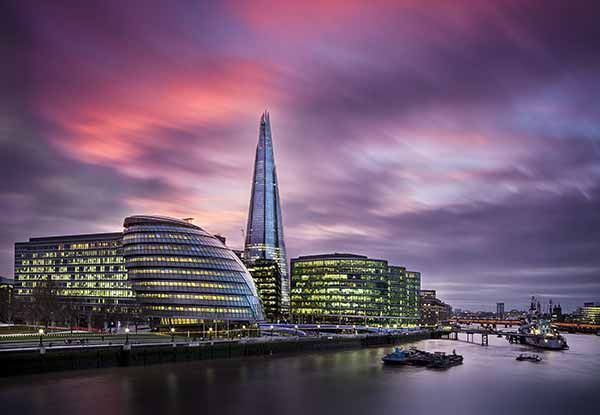
10 Best Places to Visit in the UK
The video offers a curated overview of must-see destinations across the United Kingdom. It highlights iconic cities, historic landmarks, and picturesque landscapes that showcase the UK's rich cultural heritage and natural beauty. From bustling urban centers to serene countryside locales, the guide provides insights into what makes each location unique and worth visiting.
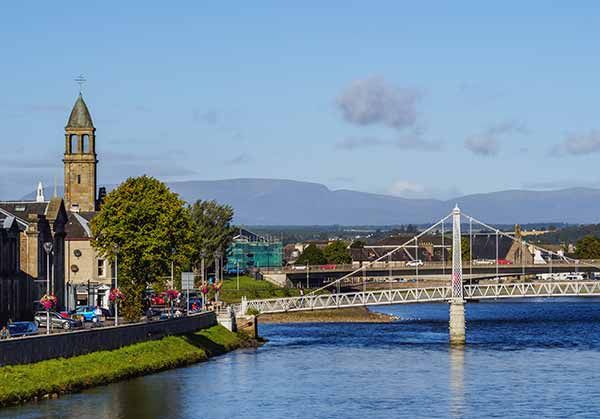
Top 10 Places to Visit in Inverness
The video provides a curated guide to the most notable attractions in and around Inverness, the cultural capital of the Scottish Highlands. It highlights key sites such as Inverness Castle, Loch Ness, and the Culloden Battlefield, offering viewers insights into the region's rich history and natural beauty. The video serves as a concise travel guide for those interested in exploring Inverness and its surroundings.
Important Travel Information
For someone planning to travel to another country, having the right information can make the trip smoother and more enjoyable. Here are the most important travel details to consider:
1. Visa Requirements for Great Britain
Great Britain's visa policy depends on your nationality, travel purpose, and length of stay.
Short Stays (Up to 6 Months)
- Visa-Free Travel: Citizens of the EU, USA, Canada, Australia, New Zealand, Japan, South Korea, and many others can enter the UK without a visa for tourism, business, or family visits for up to 6 months.
- Standard Visitor Visa: Required for travelers from many African, Asian, Middle Eastern, and South American countries. Apply online before arrival.
- Electronic Travel Authorization (ETA): Rolling out in 2024–2025. Some visa-exempt travelers will need an ETA before traveling (similar to the USA’s ESTA or EU’s ETIAS).
Long Stays (More than 6 Months)
- You must apply for a long-term visa (work, study, family) before entering the UK.
- Visa categories include Skilled Worker Visa, Student Visa, Family Visa, and others.
2. Passport Validity Requirements
- Your passport must be valid for the entire duration of your stay in the UK.
- Unlike Schengen countries, Great Britain does NOT require 6 months' validity, but airlines often recommend having at least 6 months remaining to avoid issues.
- EU/EEA/Swiss citizens can travel with a passport (national ID cards are no longer accepted unless you have protected status in the UK).
✈ Tip: Always ensure your passport is machine-readable and not damaged.
3. Vaccination & Health Requirements
Mandatory Vaccinations
- Yellow Fever: Required only if you are traveling from a country with a Yellow Fever risk. Carry an official vaccination certificate if applicable.
- COVID-19: As of 2024, there are no COVID-19 vaccination, testing, or quarantine requirements for travelers entering the UK.
Recommended Vaccinations
- Hepatitis A & B
- Measles, Mumps, Rubella (MMR)
- Tetanus, Diphtheria, Pertussis
- Influenza (especially for autumn/winter travel)
- Rabies (only for travelers engaging in outdoor activities in remote areas)
💊 Health Tip: Travel health insurance with medical coverage is strongly advised. The UK’s NHS is excellent, but treatment may not be free for tourists.
4. Customs Regulations: What You Can & Cannot Bring
The UK has strict customs regulations, especially post-Brexit, so know what you can legally bring.
Duty-Free Allowances (for Travelers from Outside the UK)
- Alcohol:
- 4 liters of spirits or strong liquor OR
- 9 liters of sparkling or fortified wine (like champagne or sherry) OR
- 18 liters of still wine OR
- 42 liters of beer.
- Tobacco:
- 200 cigarettes OR
- 100 cigarillos OR
- 50 cigars OR
- 250g of loose tobacco.
Currency:
- You must declare if carrying £10,000 or more (or equivalent) into or out of the UK.
Prohibited & Restricted Items
❌ Illegal drugs (including cannabis, even for medicinal use)
❌ Weapons (including pepper spray, stun guns)
❌ Offensive weapons like flick knives, knuckle dusters
❌ Endangered animal products (ivory, turtle shell)
❌ Meat, milk, and products thereof from non-EU countries
🚨 Tip: Always check "red channel" if carrying large amounts of alcohol, tobacco, cash, or restricted goods. When in doubt, declare!
5. Border Controls & Security Checks
- Great Britain is not part of the Schengen Area—full passport control applies at entry points.
- Expect checks for:
- Proof of accommodation (hotel booking, invitation letter)
- Return or onward ticket
- Sufficient funds for your stay
- Travelers may also be asked the purpose of their visit at immigration control.
📌 Final Tip: Always check the UK Government’s official website (gov.uk) or the UK embassy in your country for the most updated information before you travel.
1. Local Currency
- Currency: British Pound Sterling (GBP, £)
- Subunits: 1 Pound (£) = 100 Pence (p)
- Coins: 1p, 2p, 5p, 10p, 20p, 50p, £1, £2
- Banknotes: £5, £10, £20, and £50
💷 Fun Fact: British banknotes differ slightly between England, Scotland, and Northern Ireland, but all are legal tender throughout the UK (though Scottish and Northern Irish notes may be less accepted in England’s smaller shops).
2. Exchange Rate & Best Places to Exchange Money
- Exchange Rate (approximate):
- 1 GBP ≈ 1.25 USD
- 1 GBP ≈ 1.15 Euro
(Rates vary daily; always check before traveling.)
Best Places to Exchange Money:
- Banks (good rates but limited weekend hours)
- Official currency exchange offices like Travelex (common in airports and city centers)
- Post Offices (often offer competitive rates with no commission)
- ATMs (best real-time rates, but check your bank's foreign transaction fees)
💱 Tip: Avoid airport and hotel currency exchanges if possible—they often have poor rates and higher fees.
3. Availability of ATMs & Card Payments
- ATMs: Widely available across cities, towns, and even rural areas. Most machines offer free withdrawals (although your home bank may charge foreign transaction fees).
- Card Payments:
- Credit and debit cards (especially Visa and Mastercard) are accepted almost everywhere: shops, restaurants, public transport, taxis, and tourist attractions.
- Contactless payments (tap-to-pay) are extremely popular—even for small transactions like a coffee.
- Mobile payments (Apple Pay, Google Pay) are widely accepted.
💳 Cash Tip: It’s a good idea to carry a small amount of cash for very small purchases, farmers' markets, some pubs, and remote areas, but cash is no longer essential in most cities.
4. Tipping Culture
- Restaurants:
- 10–15% tip is customary if service is good.
- Some restaurants automatically add a "service charge" (especially in London)—always check your bill before tipping extra.
- Pubs:
- No tipping required when ordering drinks at the bar.
- If you receive table service, rounding up or leaving small change is appreciated.
- Taxis:
- Rounding up to the nearest pound or a 10% tip is customary.
- Hotels:
- Tip porters around £1–£2 per bag and housekeeping £1–£2 per day.
- Other Services:
- Hairdressers, spa therapists, and tour guides usually appreciate a 5–10% tip.
💷 Tipping Tip: Tipping is appreciated but not obligatory. It’s seen as a reward for good service rather than a strict expectation.
1. Official Language(s) & Basic Phrases
- Official Language: English
- Regional Languages: Welsh (Wales), Scottish Gaelic (Scotland), Irish Gaelic (Northern Ireland) — but English is universally spoken.
Basic Phrases to Know:
- Hello = Hello
- Thank you = Thank you / Cheers (informal)
- Please = Please
- Goodbye = Goodbye / Bye
- Excuse me = Excuse me
- Where is the bathroom? = Where’s the loo? (common casual phrasing)
- How much does it cost? = How much is it?
🗣 Cultural Tip: British English uses polite expressions frequently, such as "Sorry," "Please," and "Thank you," even in casual interactions.
2. English Proficiency Level
- Ease of Communication: Very easy
- Native English speakers everywhere; even regional accents (e.g., Scottish, Welsh, Northern English) are usually understandable with a little patience.
- Major tourist areas (London, Edinburgh, Oxford, etc.) are highly accustomed to international visitors.
- Some signage in Wales is bilingual (English and Welsh), but you will not need Welsh to get around.
🎯 Tip: If you're unfamiliar with British slang or accents, listening to UK TV shows (like The Great British Bake Off or Sherlock) before your trip can help!
3. Useful Translation Apps
- Google Translate: Excellent for quick help with unfamiliar English words, British slang, or reading Welsh/Scottish Gaelic signage.
- iTranslate: Handy for phrasebooks and offline access.
- Microsoft Translator: Great for conversation translation and text scanning.
📲 Tip: Download the English (UK) offline language pack before you travel, especially for rural or remote areas with patchy internet coverage.
4. Local SIM Card or eSIM Options
Local SIM Cards:
- EE: Widest 4G/5G coverage, slightly higher prices.
- Vodafone UK: Good for both cities and countryside, good tourist plans.
- O2: Great value SIM-only deals, extensive free Wi-Fi hotspots.
- Three UK: Excellent for travelers—good value prepaid SIMs with generous data.
eSIM Options:
- Airalo: Offers UK-specific eSIMs with affordable short-term data plans.
- Ubigi: Good option for seamless eSIM activation with broad UK coverage.
Where to Buy:
- Airport kiosks (higher prices)
- Mobile shops (Carphone Warehouse, Vodafone stores)
- Major supermarkets (Tesco, Sainsbury's often sell prepaid SIMs)
- Online before traveling (for eSIMs)
📱 Tip: Expect prepaid SIMs starting at around £10–£20 for a few GBs of data, unlimited texts, and minutes. If you're only staying for a week or two, a prepaid SIM is usually cheaper than roaming with your home carrier.
1. Public Transport System
- Metro/Subway:
- London Underground ("the Tube") is the world’s oldest metro system, covering most of Greater London.
- Glasgow Subway is a small but efficient circular metro line serving Glasgow’s city center and west end.
- Buses:
- Extensive and reliable bus networks operate in all major cities and towns.
- London's iconic red double-decker buses are a great way to see the city.
- In London, use an Oyster Card or contactless payment to board buses (no cash payments).
- Trams:
- Available in Manchester (Metrolink), Edinburgh, Nottingham, and Sheffield.
- Trams are modern, frequent, and well-integrated with other transport.
- Trains:
- Excellent national rail network connecting major cities, airports, and scenic regions.
- Book in advance for cheaper fares via apps like Trainline or National Rail.
- No tuk-tuks or rickshaws (except limited tourist rickshaws in central London, often overpriced).
🚇 Tip: Download city-specific transport apps like TfL Go for London or Traveline for national public transport planning.
2. Taxi & Ridesharing Options
- Traditional Taxis:
- London Black Cabs: Reliable, regulated, and accept card payments. Hail them on the street or at taxi ranks.
- Local taxis operate across cities and towns—always check if they’re licensed (display a badge).
- Ridesharing Apps:
- Uber: Widely available in London and most major cities.
- Bolt: Increasingly popular in London and several other cities.
- Free Now: A taxi and private hire app operating in multiple UK cities.
Addison Lee: A premium car service, mostly in London.
🚖 Tip: In smaller towns or rural areas, it’s best to book a taxi by phone in advance as app availability may be limited.
3. Driving Rules
- Driving Side: Left-hand side of the road.
- License Requirements:
- Tourists can drive with a valid national driving license for up to 12 months.
- International Driving Permit (IDP):
- Not required for EU, USA, Canada, Australia, and many other countries.
- Recommended if your license is not in English (e.g., licenses in Arabic, Chinese, Cyrillic scripts).
- Key Road Rules:
- Seatbelts are mandatory.
- Mobile phone use while driving is illegal unless hands-free.
- Roundabouts are common—traffic from the right has priority.
- Pay attention to congestion charges (e.g., in central London).
🚗 Tip: Parking can be tricky and expensive in city centers—consider using Parkopedia or JustPark apps to find parking spots.
4. Bike/Scooter Rental Options
- Bike Rentals:
- Santander Cycles ("Boris Bikes") in London—self-service bike hire at docking stations across the city.
- Other cities like Glasgow, Manchester, and Liverpool have similar public bike-sharing programs.
- E-Scooter Rentals:
- Available in some cities as part of official trials (e.g., London suburbs, Bristol, Coventry).
- Rental companies include Voi, Dott, and Lime.
- Must be at least 18 years old and hold at least a provisional UK driving license to rent legally.
- Private Bike & Scooter Tours:
- Many cities offer guided bike or e-scooter tours—great for sightseeing with a local guide.
🚴 Tip: Helmets are not mandatory but are highly recommended for bike and scooter use.
1. Best Neighborhoods for Tourists
London:
- Covent Garden: Central, lively, and walkable—great for shopping, dining, and West End theaters.
- South Bank: Riverside area near major attractions like the London Eye, Tate Modern, and Borough Market.
- Kensington: Upscale, safe, close to museums (V&A, Natural History Museum) and Hyde Park.
Shoreditch: Trendy, artistic neighborhood with street art, indie shops, and vibrant nightlife.
Edinburgh:
- Old Town: Medieval charm, historic attractions like Edinburgh Castle, and easy access to the Royal Mile.
- New Town: Elegant Georgian architecture, boutique shopping, and quieter streets still near main sights.
Manchester:
- Northern Quarter: Creative hub with indie shops, art galleries, cafes, and nightlife.
- Deansgate: Central location with easy access to shopping, dining, and cultural spots.
Bath:
- City Centre: Perfect for walking to Roman Baths, Bath Abbey, and stylish shopping areas.
🏘 Tip: Look for accommodations near public transport hubs for easy sightseeing!
2. Hotel, Hostel, or Airbnb Options
- Hotels:
- Budget (£50–£100/night): Premier Inn, Travelodge, Ibis.
- Mid-range (£100–£200/night): Hilton, Radisson Blu, CitizenM, local boutique hotels.
- Luxury (£200+/night): The Savoy (London), Balmoral Hotel (Edinburgh), The Langham (London).
- Hostels:
- Budget-friendly (£20–£50/night): YHA Hostels,
- Generator Hostel (London), Safestay (multiple cities).
- Many offer private rooms and communal kitchens.
- Airbnb:
- Wide range from £50–£150+ per night depending on city and location.
- Options range from private rooms to entire flats, with especially charming finds in Edinburgh and Bath.
Booking Platforms:
- Booking.com (hotels, guesthouses)
- Hostelworld (hostels)
- Airbnb (apartments, private stays)
- Expedia (package deals)
🏨 Tip: Book early for summer (June–August) and December holidays—rooms fill up fast!
3. Cultural Stay Recommendations
Traditional Homestays:
- Stay in a countryside bed and breakfast (B&B) for a truly British experience—expect cozy rooms, homemade breakfasts, and friendly hosts.
- Especially popular in the Lake District, Cotswolds, and rural Scotland.
Boutique Hotels:
- Hazlitt’s (London): Historic 18th-century townhouse hotel full of antiques and charm.
- The Witchery by the Castle (Edinburgh): Lavish, theatrical suites near Edinburgh Castle.
- The Pig Hotels (various locations): Country house hotels with farm-to-table dining and rustic-chic style.
Historic Inns & Manor Houses:
- Spend a night in a centuries-old coaching inn or manor house in regions like the Cotswolds or Yorkshire Dales for a mix of luxury and heritage.
🏡 Tip: For something special, search for "historic hotels" or "heritage stays" when booking.
1. Crime Levels & Travel Advisories
General Safety:
Great Britain is considered very safe for travelers. Violent crime against tourists is rare, and most visits are trouble-free.
Common Risks:
- Pickpocketing: Be alert in crowded tourist areas such as London’s Oxford Street, Covent Garden, public transport (especially the Tube), and major festivals or events.
- Scams: Rare but possible; watch out for fake charity collectors, ticket touts, and overpriced tourist services in major cities.
Travel Advisories:
- Regularly updated on your government’s official travel site (e.g., U.S. Department of State, UK’s FCDO).
- No widespread security risks; occasional localized protests or transport strikes may cause disruptions.
🚨 Safety Tip: Always keep your belongings secure, use hotel safes when available, and stay aware in busy areas.
2. Emergency Contacts
- Police, Ambulance, Fire Brigade:
- 📞 999 (Emergency services)
- 📞 112 (EU-wide emergency number; also works in the UK)
- Non-Emergency Police:
- 📞 101
- Medical Helpline (NHS Direct):
- 📞 111 (non-emergency medical advice)
- Embassies:
- Most foreign embassies are located in London.
- It's smart to register your travel with your embassy if your country offers a program (e.g., U.S. STEP program).
🆘 Tip: Save these numbers in your phone before traveling!
3. Local Laws & Customs
Dress Codes:
- Casual dress is widely accepted.
- In religious sites (e.g., Westminster Abbey, St. Paul's Cathedral), modest clothing (covered shoulders, no hats) is recommended.
Alcohol Restrictions:
- Legal drinking age is 18.
- Drinking in public is allowed in most places, but banned in specific zones (especially parts of London, Manchester, Glasgow).
- Some local authorities have "no public drinking" policies—watch for signs.
Photography Rules:
- Photography is generally allowed in public spaces.
- Museums, galleries, and historic sites may prohibit photography or restrict flash use—always check signage.
- Avoid photographing government buildings or military sites without permission.
📸 Tip: Always ask permission before photographing people, especially in smaller towns or markets.
4. Health & Hygiene Considerations
Tap Water Safety:
- Tap water is safe to drink everywhere in Great Britain.
- Many restaurants, cafes, and pubs will provide free tap water upon request.
Medical Facilities:
- The UK’s National Health Service (NHS) provides high-quality medical care.
- Emergency care is available to everyone, but non-urgent treatment may require upfront payment if you're not a UK resident.
- Travel insurance with medical coverage is highly recommended.
Pharmacies:
- Known as "chemists" in the UK.
- Boots and Superdrug are common pharmacy chains offering over-the-counter medications and basic health services.
💊 Health Tip: Carry any essential medications with you and have a doctor’s note for prescription drugs.
1. Typical Weather Conditions
General Climate:
Great Britain has a temperate maritime climate, meaning mild temperatures, frequent cloud cover, and regular rainfall year-round.
Seasons:
- Spring (March to May): Mild and fresh, with blooming flowers and occasional rain showers. Temperatures range from 8°C to 15°C (46°F to 59°F).
- Summer (June to August): Warm but rarely hot. Expect temperatures between 15°C and 25°C (59°F to 77°F), with longer daylight hours and occasional heatwaves.
- Autumn (September to November): Cool and crisp, with colorful foliage and increasing rain. Temperatures drop to around 10°C to 17°C (50°F to 63°F).
- Winter (December to February): Cold, damp, and often windy, with temperatures averaging 2°C to 8°C (36°F to 46°F). Snow is rare in southern England but more common in Scotland and higher elevations.
Rainfall:
Rain is possible in any season, often light and drizzly rather than heavy storms. Always carry a light rain jacket or umbrella!
☔ Tip: "Four seasons in one day" is common—layered clothing is key!
2. Best Months to Visit
High Season (June to August):
- Best for festivals, sightseeing, and outdoor activities.
- Expect higher prices and larger crowds, especially in London, Edinburgh (during the Fringe Festival), and popular coastal areas.
Shoulder Season (April to May, September to October):
- Ideal for pleasant weather, fewer tourists, and beautiful natural scenery (spring flowers or autumn colors).
- Accommodation and flight prices tend to be lower compared to peak summer.
Low Season (November to March):
- Great for exploring cities, museums, and historic sites without the crowds.
- Best deals on hotels and flights, but expect shorter daylight hours and chilly, damp weather.
- December is festive with Christmas markets and events across the country.
📅 Tip: May and September offer a great balance of good weather and fewer crowds—perfect months for travelers seeking the best experience.
3. Natural Disaster Risks
Hurricanes/Typhoons:
- No tropical hurricanes or typhoons.
- Occasionally, the UK experiences the remnants of Atlantic storms in autumn, leading to strong winds and heavy rain, but they are usually not dangerous.
Earthquakes:
- Very rare and usually very minor (small tremors).
Flooding:
- Localized flooding can happen, especially in low-lying rural areas during heavy rain periods, but major tourist destinations are usually unaffected.
Other Risks:
- Strong winds in coastal and upland areas during storms.
- Ice and snow disruptions are possible in winter, mainly in Scotland and Northern England.
🌦 Tip: Always check the local weather forecast (BBC Weather or Met Office apps) before planning outdoor activities, especially in autumn and winter.
1. Local Dishes to Try
- Fish and Chips: A classic British dish—crispy battered fish served with thick-cut fries ("chips") and often mushy peas. Best enjoyed at a seaside town or a traditional pub.
- Full English Breakfast: A hearty meal of eggs, bacon, sausages, baked beans, grilled tomatoes, mushrooms, toast, and sometimes black pudding. Served in cafes and hotels across the country.
- Sunday Roast: Traditional Sunday meal featuring roasted meat (beef, chicken, lamb), roast potatoes, vegetables, Yorkshire pudding, and gravy.
- Shepherd’s Pie: Comforting dish of minced lamb and vegetables topped with creamy mashed potatoes, baked until golden.
- Afternoon Tea: A quintessential British experience involving tea, finger sandwiches, scones with clotted cream and jam, and delicate pastries.
🍽 Tip: Look for a traditional pub or tea room for the most authentic local food experiences!
2. Dietary Restrictions
Vegetarian Options:
Widely available. Many pubs, restaurants, and cafes offer dedicated vegetarian dishes. Cities like London, Brighton, and Bristol have excellent vegetarian and vegan scenes.
Halal Options:
Readily available in major cities. Look for certified halal restaurants, particularly in areas with large Muslim communities like East London, Birmingham, and Manchester.
Kosher Options:
Available mainly in London, particularly in neighborhoods like Golders Green and Stamford Hill. Always check for certification.
🌱 Tip: Menus often clearly label vegetarian (V), vegan (VG), gluten-free (GF), and halal options—especially in larger cities.
3. Street Food Safety
General Safety:
Street food is generally safe and popular in Britain, especially at markets like Borough Market (London) and St. Nicholas Market (Bristol).
Tips for Avoiding Food Poisoning:
- Choose stalls that are busy with locals (high turnover means fresher food).
- Make sure food is cooked thoroughly and served hot.
- Check for basic hygiene (clean hands, gloves, covered food).
- Be cautious with dairy-based sauces left unrefrigerated on hot days.
🌯 Tip: Carry hand sanitizer and stay hydrated if sampling multiple street foods.
4. Restaurant Etiquette
Eating Customs:
- Waiting to be seated is common in restaurants; in pubs, you usually order food and drinks at the bar.
- It’s polite to say “please” and “thank you” when ordering.
- In casual settings like pubs, tipping is not expected, but rounding up the bill is appreciated.
Service Charges:
- Some restaurants automatically add a 12.5% service charge to the bill (especially in London)—check your receipt.
- If no service charge is included, a tip of 10–15% for good service is customary.
🍴 Tip: If unsure about tipping, simply ask politely: "Is service included?"
1. Average Daily Budget
Backpacker: £50–£80/day
- Hostel dorm bed, self-catered meals or cheap eats, public transport, and free attractions.
Mid-Range Traveler: £120–£200/day
- 3-star hotel or private Airbnb, mix of restaurant meals and casual dining, paid attractions, occasional taxis or train rides.
Luxury Traveler: £300+/day
- 4- to 5-star hotels, fine dining, guided tours, private transfers, and premium experiences (like West End theater shows or private excursions).
💷 Tip: London is generally more expensive than other UK cities like Manchester, Edinburgh, or Cardiff.
2. Cost of Meals, Transport, and Attractions
Meals:
- Budget (takeaway sandwich, street food): £5–£10
- Casual restaurant meal: £12–£25
- Fine dining (per person): £50–£100+
Transport:
- London Underground: £2.80–£3.50 per journey with an Oyster Card.
- Intercity train (e.g., London to Manchester): £30–£100+ depending on when you book.
- Bus rides (outside London): £2–£4 per ride.
Attractions:
- Museums and galleries: Many are free (e.g., British Museum, National Gallery).
- Major attractions (e.g., Tower of London, Edinburgh Castle): £15–£30 entrance fee.
- Theater tickets: £20–£100+, depending on the show and seat.
🚆 Tip: Book trains and tickets early online to secure cheaper fares!
3. Ways to Save Money
City Passes:
- London Pass: Access to 80+ attractions including Tower of London and Westminster Abbey.
- Edinburgh City Pass: Covers museums, galleries, and selected tours.
Discount Cards:
- Two Together Railcard: 1/3 off train travel for two people traveling together.
- 16–25 Railcard or Senior Railcard: Discounts on UK train travel for eligible travelers.
Free Activities:
- Many top museums and galleries have free entry (with optional donation).
- Explore famous parks like Hyde Park, Regent’s Park, and Holyrood Park.
- Attend free walking tours offered in cities like London, Oxford, and Edinburgh (tip-based).
🎟 Tip: Always check official attraction websites for online-only discounts or combo tickets!
1. Gestures & Body Language
Politeness:
- Being polite is extremely important. Frequent use of "please," "thank you," and "sorry" is common and appreciated.
What’s Considered Rude:
- Not queuing (standing in line) is seen as very disrespectful.
- Speaking loudly or interrupting is frowned upon.
- The "V-sign" with the palm facing inward is an offensive gesture (similar to the middle finger elsewhere).
General Behavior:
- Smiling, maintaining moderate eye contact, and offering a handshake are normal in first interactions.
🤝 Tip: Good manners and a calm, reserved demeanor are highly valued.
2. Social Etiquette
Greetings:
- A handshake is the most common greeting when meeting someone for the first time.
- Among friends, a nod, smile, or sometimes a light hug is typical.
- "How are you?" is often used casually as a greeting, not necessarily expecting a detailed answer.
Personal Space:
- Britons value personal space; standing too close can make people uncomfortable.
- Respect queues and avoid touching strangers unnecessarily.
Small Talk:
- Talking about the weather is a classic and safe conversation starter.
🌦 Tip: Complimenting someone’s home, garden, or pet is considered polite.
3. Religious Considerations
Dress Codes:
- Generally very relaxed across the country.
- Modest clothing is expected when visiting religious sites like churches, cathedrals, mosques, and temples (e.g., covering shoulders, no hats inside).
Prayer Times:
- Public life does not pause for prayer times, but mosques in cities like London, Birmingham, and Manchester offer prayer facilities.
- Larger shopping centers, airports, and universities often have multi-faith prayer rooms.
🕌 Tip: Always check specific religious site rules for photography, dress codes, and behavior.
4. Workweek & Holidays
Workweek:
- Standard business hours are Monday to Friday, 9:00 AM to 5:00 PM.
- Shops are often open later, especially in larger cities (up to 8:00 PM or even 10:00 PM).
Public Holidays (Bank Holidays):
- New Year’s Day (January 1)
- Good Friday and Easter Monday (March/April)
- Early May Bank Holiday (First Monday in May)
- Spring Bank Holiday (Last Monday in May)
- Summer Bank Holiday (First Monday in August for Scotland, last Monday in August for England, Wales, and Northern Ireland)
- Christmas Day (December 25)
- Boxing Day (December 26)
Holiday Notes:
- Public transport may operate on a limited schedule during holidays.
- Major tourist attractions usually remain open, but some small shops and offices may close.
📅 Tip: Always double-check attraction and transport schedules if traveling during public holidays.
Enhance your travel with our Apps
If you like to travel in real life or virtual, then you have come to the right place.

VOYAGER
Mobile Travel Companion
Plan your perfect trip with NewPerspective Voyager. Designed for travelers on the go, Voyager provides all the tools you need to make your journey smooth and unforgettable:
- Comprehensive travel guides, including the best sights, accommodations, restaurants, and transportation tips.
- Practical information like currency exchange points and local travel insights.
- Group travel support with built-in chat features, document sharing, and itinerary collaboration.
With Voyager in your pocket, every trip becomes stress-free and memorable.

Explorer 360
VR/AR Software for Goggles & Mobile Phones
Immerse yourself in the world like never before. NewPerspective Explorer leverages cutting-edge VR/AR technology to bring your travels to life. With access to Google Earth data, you can fly to any destination, view stunning 3D cities, and explore Street View. But that’s just the beginning.
Explorer stands out by offering:
- High-resolution 360° videos and panoramic images for breathtaking realism.
- Free exploration of locations using advanced Gaussian Splats technology for seamless navigation.
- Curated landmarks, each narrated to deepen your understanding and connection to the places you visit.
With Explorer, you don’t just visit a location—you experience it.


